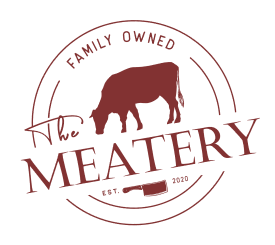Understanding Halal Certification
The halal certification process for meat products is thorough and stringent, designed to comply meticulously with Islamic dietary laws. To receive halal certification, the entire production chain, from raising the animal to its slaughter and processing, must strictly adhere to Islamic guidelines.
Key Requirements for Halal Certification Include:
-
Humane Treatment: Animals must be treated with care, compassion, and respect throughout their lives.
-
Dietary Standards: Animals must consume a natural, vegetarian diet, free from any prohibited substances.
-
Proper Slaughter: Animals must be slaughtered by a qualified Muslim slaughterer, invoking the name of Allah during the process. The method involves a swift, humane incision with a sharp knife, severing the carotid artery, jugular veins, and windpipe.
-
Blood Drainage: All blood must be completely drained, as consumption of blood is strictly prohibited (haram).
-
Cleanliness and Purity: Facilities must prevent cross-contamination between halal and non-halal items through rigorous cleaning and sanitization processes.
Reputable certification bodies such as the Islamic Services of America and the Halal Food Authority oversee and audit these processes regularly, ensuring compliance with Islamic dietary principles.
Is Steak Halal in Islam?
In Islam, consuming beef—including steak—is generally permissible (halal), provided specific criteria are met. Notably:
-
The animal must belong to a permissible species, such as cattle, sheep, goats, or camels.
-
Slaughter must follow strict Islamic protocols, performed by a Muslim slaughterer while invoking the name of Allah.
-
Blood, inherently haram, must be fully drained to meet halal requirements.
These conditions ensure that steak and other beef products align with Islamic dietary guidelines, allowing Muslims to consume them confidently.
The Halal Butchering Process for Wagyu Cattle
Butchering Wagyu cattle according to halal guidelines requires meticulous attention and precision at each step. Once the animal has been humanely slaughtered by a trained Muslim slaughterer, ensuring the invocation of Allah's name and immediate draining of blood, the carcass undergoes careful handling to maintain purity and prevent contamination. Skilled butchers then meticulously segment the beef into premium cuts, respecting both culinary excellence and religious guidelines. Each stage, from initial carcass handling to final packaging, is closely supervised by halal certification inspectors to guarantee adherence to Islamic dietary laws.
Exploring Wagyu Beef: A Brief Introduction
Wagyu beef, originating from Japan, is globally acclaimed for its extraordinary quality, marbling, and unmatched tenderness. "Wagyu," translating to "Japanese cow," includes several prestigious breeds like Kobe, Miyazaki, and Australian Wagyu, all famous for their intricate marbling patterns and rich, buttery taste.
Is Australian Wagyu Halal?
Australian Wagyu is widely celebrated for its premium quality, comparable to Japanese Wagyu, but more accessible globally. Similar to other Wagyu breeds, Australian Wagyu isn't inherently halal. However, numerous Australian producers now specifically cater to halal consumers by obtaining halal certifications.
These producers follow meticulous standards for halal practices, from raising animals on vegetarian diets to ensuring humane slaughter methods align with Islamic guidelines. Australian Wagyu labeled as halal-certified assures consumers that every aspect—from farm to table—respects Islamic dietary laws.
To confirm halal status, always look for certifications provided by trusted organizations, such as Islamic Services of America or Halal Food Authority. You can explore authentic halal-certified Australian Wagyu options conveniently here at The Meatery.
The Importance of Authentic Halal Certification
Ensuring authenticity in halal certification isn't merely a religious concern; it's also about trust and transparency. With the global halal market growing rapidly, particularly within the luxury segment like Wagyu, consumers should be vigilant.
Always verify certification sources and consider purchasing from trusted, reputable vendors who transparently showcase their halal certification credentials. Authentic certifications from known entities offer reassurance that ethical, religious, and hygienic standards have been strictly upheld.
Wagyu Quality Grades Explained
Wagyu beef quality is categorized primarily based on marbling, color, texture, and firmness. While grading systems may vary slightly depending on the region, the following grades are standard globally:
Prime
-
Highest grade with exceptional, abundant, and evenly distributed marbling.
-
Distinguished by a vibrant, cherry-red color and firm texture.
-
Represents the pinnacle of tenderness and flavor, commanding premium prices.
Choice
-
Second-highest grade, characterized by slightly less marbling than Prime.
-
Still offers superb taste and tenderness, ideal for high-quality dining experiences.
Select
-
Moderate marbling and more subdued flavors compared to Prime and Choice.
-
Often more affordable, suitable for regular consumption while still providing a superior experience to standard beef.
Standard
-
Minimal marbling, providing a less intense flavor profile.
-
Usually the most economically accessible Wagyu, though still preferable over regular beef due to genetic advantages in tenderness and taste.
Higher Wagyu grades like Prime and Choice offer unparalleled dining experiences, though even lower grades significantly surpass conventional beef products.
Cooking Halal Wagyu: Tips for Perfection
Cooking halal Wagyu beef demands attention to detail to fully enjoy its distinctive flavors and textures:
-
Simple Seasoning: Keep seasoning minimal—salt and pepper often suffice to enhance natural flavors.
-
Optimal Cooking Methods: Prefer grilling, pan-searing, or sous vide to preserve moisture and enhance tenderness.
-
Correct Temperature: Wagyu is best enjoyed rare to medium-rare (130°F to 135°F internal temperature) to fully appreciate its luxurious texture and flavor.
-
Rest the Meat: Allow Wagyu steaks to rest for a few minutes after cooking, ensuring juices redistribute evenly.
These careful steps help retain the exquisite taste and tenderness unique to Wagyu beef.
Halal Wagyu: Ethical Dining and Culinary Excellence
Choosing halal Wagyu isn't just about dietary restrictions—it's an embrace of ethical consumption, quality, and luxury. Halal practices inherently respect animal welfare, contributing to sustainability and humane treatment.
By opting for certified halal Wagyu from reputable sources, you not only honor religious commitments but also support ethical farming and production standards. This approach enhances both the culinary experience and consumer confidence.
Where to Find Certified Halal Wagyu
If you're interested in experiencing the unmatched flavor of halal-certified Wagyu, explore carefully curated selections at trusted vendors such as The Meatery. Here you'll discover premium, ethically sourced, and authentically certified halal Wagyu beef options ready for delivery straight to your doorstep.










